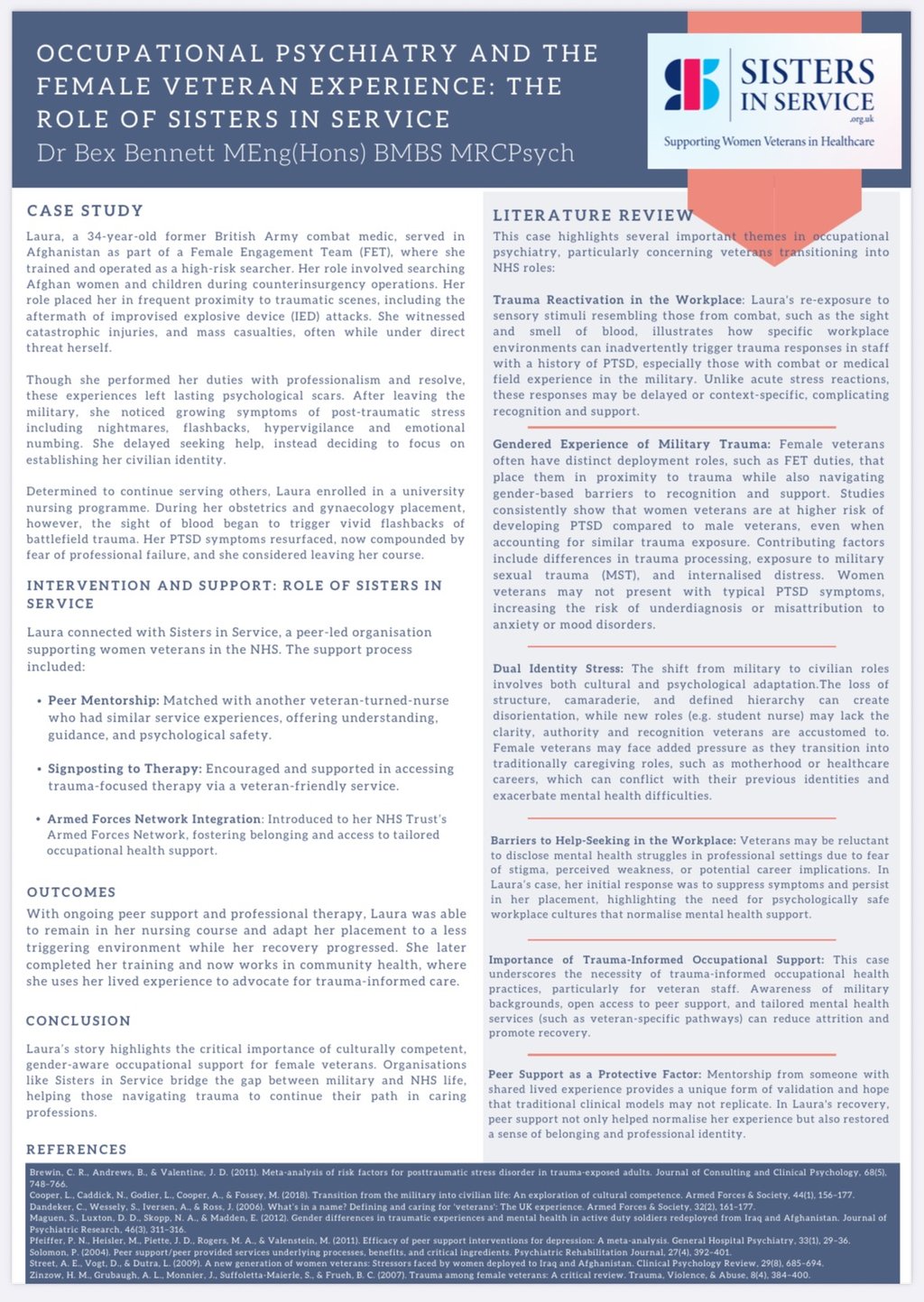Occupational Psychiatry Conference
Celebrating Work and Mental Health at the Royal College of Psychiatrists – and a Poster Competition Win!
9/30/20252 min read


Today I had the privilege of attending the Occupational Psychiatry Special Interest Group (OPSIG) Conference at the Royal College of Psychiatrists, focused on “Work and Mental Health: Clinical, Organisational and Systemic Action. ” OPSIG aims to raise awareness of the value of occupational psychiatry and to encourage appropriate research on the subject. It acts as a forum for psychiatrists interested in occupational psychiatry to share ideas, dilemmas and research ideas.
From the very first session, it was clear how vital the conversation about workplace mental health is. We explored the mental health challenges facing healthcare staff, trauma-exposed workers, and organisations, drawing insights from NHS Check data, clinical services like the Practitioner Health Programme, and international comparisons. The day was packed with expert talks, practical strategies, and thoughtful discussions about supporting staff wellbeing at every level.
I presented my poster as part of the Resident Doctors poster competition. It was advised that the poster should be based on a clinical case (which could be fictional) and accompanied by a literature review, to highlight an issue relevant to the field of occupational medicine. My poster was based around a fictional case of an ex-servicewoman named 'Laura' who had served in Afghanistan as part of one of the female engagement teams and after leaving the army had re-trained to be a nurse. She had found some of the ward placements to bring back memories of war and I detailed how Sisters in Service was able to support women like Laura with their transition. I also aimed to emphasise the different support service-women may need in the workplace, which may be different from their male counterparts. Not only did I get to engage in meaningful discussions about the work of Sisters in Service, but I also had the amazing honour of winning!
My poster was able to bring more awareness to the issues surrounding ex-servicewomen and the importance of taking action to support the mental health of healthcare staff and trauma-exposed workers. It started many conversations and I was able to meet a lot of very interesting people.
Leaving the conference, I feel energised, motivated, and grateful for the opportunity to learn from so many brilliant minds. Today reinforced that improving mental health in the workplace isn’t just a clinical or organisational challenge, it’s a shared mission, and I’m excited to keep contributing to it.
Dr Bex Bennett
